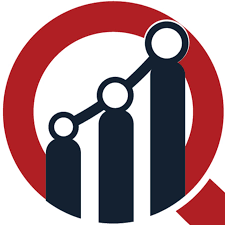Rapid improvements in financial technology (fintech) have resulted in dramatic changes in a variety of industries, including debt collection. Fintech debt collection makes use of cutting-edge technologies and digital solutions to improve the efficiency and efficacy of the debt collection process. In this article, we will look at how fintech debt collection is changing the market and the advantages it provides firms in collecting outstanding debts.
Enhanced Efficiency through Automation:
Automation tools are used by fintech debt collection companies to streamline and speed the debt recovery process. Data entry, paperwork, and payment processing are among the manual operations that have been automated, decreasing human error and enhancing operational efficiency. This allows debt collection organizations to handle more accounts and distribute resources more effectively.
Improved Communication Channels:
Fintech debt collection platforms enable debt collection agents, creditors, and borrowers to communicate in real-time. IVR systems, email reminders, and SMS notifications are all connected, allowing for real-time and individualized engagement with debtors. By guaranteeing timely and focused interactions, such simplified communication improves the prospects of debt resolution.
Data-Driven Decision-Making:
Fintech debt collection examines massive volumes of debtor data using powerful data analytics and machine learning algorithms. Using this data-driven method, debt collection firms can acquire significant insights about debtor behavior, payment habits, and financial capacity. Agencies can establish targeted collection efforts by analyzing debtor profiles, boosting the probability of successful debt recovery.
Personalized Customer Experience:
They prioritize the client experience by providing debtors with customized solutions. Debtors can access the details of their accounts, payment history, and available payment alternatives via self-service portals and mobile applications. This level of simplicity and transparency enables debtors to reclaim control of their financial commitments and promotes a positive and cooperative approach to debt recovery.
Compliance with Regulatory Requirements:
Fintech debt collection ensures that regulatory standards, such as the Fair Debt Collection Practices Act (FDCPA) and Consumer Financial Protection Bureau (CFPB) rules, are strictly followed. They provide built-in compliance measures and security protocols to safeguard debtor information and ensure compliance with industry standards. Fintech debt collection platforms support ethical and legal debt collection procedures by emphasizing compliance.
Integration of Payment Solutions:
They incorporate a variety of payment options, making it less difficult for debtors to meet their financial commitments. Credit/debit card payments, automated clearing house (ACH) transfers, and digital wallets are all effortlessly linked into the platforms. This simplifies debtors’ payment processes and raises the likelihood of successful debt settlement.
Scalability and Flexibility:
Debt collection companies in the USA and creditors benefit from the scalability and flexibility provided by fintech debt collection systems. They can handle a huge number of accounts at the same time, allowing agencies to manage multiple portfolios more efficiently. Furthermore, fintech platforms may be adapted and tailored to specific business needs, allowing creditors to respond to changing market conditions and legal changes.
Real-Time Monitoring and Reporting:
Fintech debt collection enables real-time monitoring and reporting, providing meaningful insights into the debt collection process. Creditors and debt collection agencies can monitor payment trends and provide detailed reports on key performance indicators by tracking the status of collection activities. This data-driven strategy enables more informed decision-making and ongoing improvement of debt collection techniques.
Conclusion:
Fintech debt collection has revolutionized the debt recovery landscape, providing businesses and debt collection agencies with a variety of benefits. Fintech platforms expedite the debt collection process, improve efficiency, and raise the odds of successful debt resolution through automation, improved communication channels, data-driven decision-making, individualized client experiences, and payment solution integration. Businesses that embrace fintech debt collection may efficiently negotiate the challenges of debt recovery while remaining in compliance with regulatory regulations. As technology advances, the role of debt collection in the fintech industry will grow in importance, transforming the sector and resulting in improved outcomes for creditors, debt collection agencies, and debtors alike.






